EP05 Topical Panel 17 - Family and Couple Therapy - John Gottman, PhD; Julie Gottman, PhD; Harville Hendrix, PhD; Salvador Minuchin, MD; Michele Weiner-Davis, MSW
- Average Rating:
- Not yet rated
- Topic Areas:
- Topical Panels | Couples Therapy | Family Therapy | Psychotherapy
- Categories:
- Evolution of Psychotherapy | Evolution of Psychotherapy 2005 | Pioneers in Couples and Family Therapy
- Faculty:
- John Gottman, PhD | Julie Gottman, PhD | Harville Hendrix, PhD | Salvador Minuchin, MD | Michele Weiner-Davis, LCSW
- Duration:
- 58 Minutes
- Format:
- Audio Only
- Original Program Date:
- Dec 10, 2005
- License:
- Never Expires.
Description
Description: This panel on family therapy brings together leading voices to reflect on the field’s evolution and future. Speakers emphasize emotional connection, mutual respect, and the relational paradigm as central to lasting relationships. Topics include managing perpetual conflict with gentleness, nurturing small daily connections, and embracing difference. The conversation highlights solution-focused strategies and encourages an optimistic, flexible stance in clinical work.
Educational Objectives:
- To compare and contrast clinical and philosophical perspectives of experts.
*Sessions may be edited for content and to preserve confidentiality*
Credits
Handouts
| Timestamped Transcript (703.9 KB) | 15 Pages | Available after Purchase |
| Ericksonian Learning Snapshot (273.7 KB) | 3 Pages | Available after Purchase |
Faculty
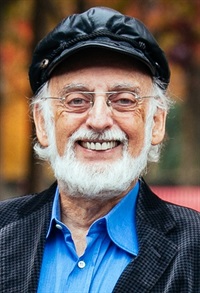
John Gottman, PhD Related Seminars and Products
John Gottman, PhD, was one of the Top 10 Most Influential Therapists of the past quarter-century by the Psychotherapy Networker. Dr. Gottman is a professor emeritus in psychology known for his work on marital stability and relationship analysis through scientific direct observations, many of which were published in peer-reviewed literature. He is the author or co-author of over 200 published academic articles and more than 40 books, including the bestselling The Seven Principles for Making Marriage Work; What Makes Love Last; The Relationship Cure; Why Marriages Succeed or Fail; and Raising An Emotionally Intelligent Child, among many others.
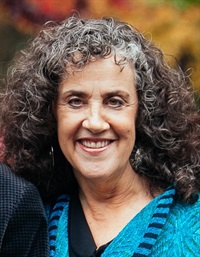
Julie Gottman, PhD Related Seminars and Products
Julie Gottman, PhD, is the co-founder and President of The Gottman Institute, and Clinical Supervisor for the Couples Together Against Violence study. A highly respected clinical psychologist, she is sought internationally by media and organizations as an expert adviser on marriage, sexual harassment and rape, domestic violence, gay and lesbian adoption, same-sex marriage, and parenting issues. She is the co-creator of the immensely popular The Art and Science of Love weekend workshops for couples, and she also co-designed the national clinical training program in Gottman Couples Therapy.
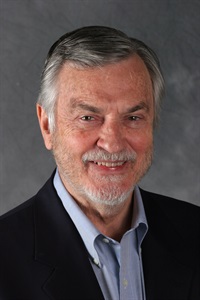
Harville Hendrix, PhD Related Seminars and Products
Harville Hendrix, PhD and Helen LaKelly Hunt, PhD are partners in life and work. Their lives and work are integrated in their commitment to the transformation of couples and families and to the evolution of a relational culture that supports universal equality. Harville is co-creator of Imago Relationship Therapy and co-founder of Imago Relationships International. Chancellor of the Imago International Institute and emeritus board member of IRI. Dr. Hendrix has received an honorary Doctor of Humane Letters from Mercer University, Macon, GA, the Distinguished Service Award from the American Association of Pastoral Counselors, and the Distinguished Contributors Award by the Association for Imago Relationship Therapy. His latest book, written with his wife, Helen Hunt, is Receiving Love.
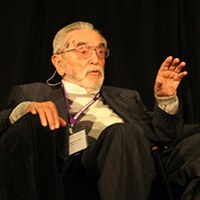
Salvador Minuchin, MD Related Seminars and Products
Salvador Minuchin, MD, developed Structural Family Therapy, which addresses problems within a family by charting the relationships between family members, or between subsets of family. He was Director of the Philadelphia Child Guidance Clinic. Although it was minimally staffed when he began, under his tutelage the Clinic grew to become one of the most modeled and respected child guidance facilities in the world. In 1981, Minuchin began his own family therapy center in New York. After his retirement in 1996, the center was renamed the Minuchin Center. Dr. Minuchin is the author of many notable books, including many classics. His latest is Mastering Family Therapy: Journeys of Growth and Transformation. In 2007, a survey of 2,600 practitioners named Minuchin as one of the ten most influential therapists of the past quarter-century.
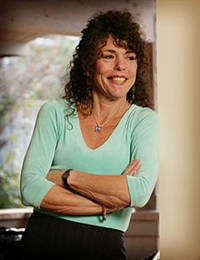
Michele Weiner-Davis, LCSW Related Seminars and Products
Michele Weiner-Davis, LCSW is the Founder of The Divorce Busting Center in Boulder, Colorado. She is a popular TEDx speaker and the author of eight books including, Healing From Infidelity, and the bestselling Divorce Busting and The Sex-Starved Marriage. She is the recipient of several prestigious awards including the Outstanding Contribution to Marriage and Family Therapy Award from AAMFT.


